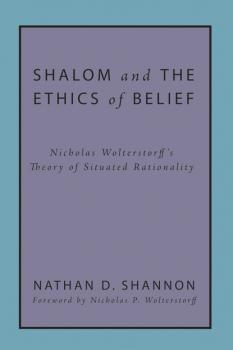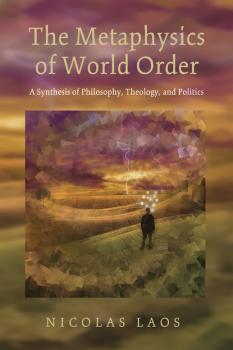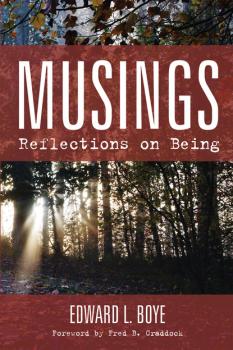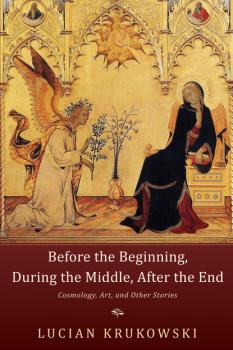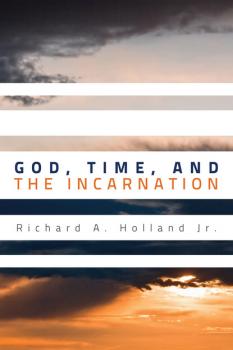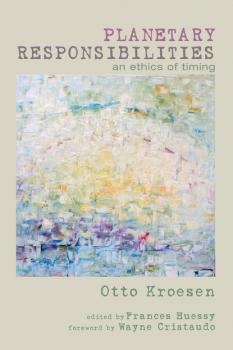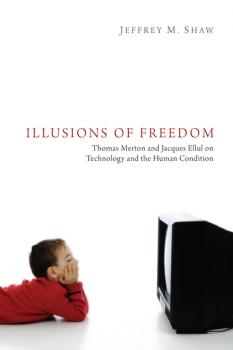Афоризмы и цитаты
Различные книги в жанре Афоризмы и цитатыShalom and the Ethics of Belief
Against the individualism and abstractionism of standard modern accounts of justification and epistemic merit, Wolterstorff incorporates the ethics of belief within the full scope of a person's socio-moral accountability, an accountability that ultimately flows from the teleology of the world as intended by its creator and from the inherent value of humans as bearers of the divine image. This study explores Nicholas Wolterstorff's theory of «situated rationality» from a theological point of view and argues that it is in fact a doxastic ethic based upon the theology of Wolterstorff's neo-Calvinist, Kuyperian background, which emerges in terms of his biblical ethic and eschatology of shalom. Situated rationality, the sum of Wolterstorff's decades-long work on epistemology and rationality is a shalom doxastic ethic–a Christian, common grace ethic of doxastic (even religious doxastic) pluralism.
Apology of Culture
Contemporary philosophy and theology are ever more conscious of the fact that the model of relations between religion and culture developed in modernity is fundamentally flawed. The processes of the secularization of society, culture, and even religion are rooted in the dualistic vision of religion and culture introduced in the late Middle Ages. In seeking a way out, we need to explore domains of culture unaffected by Western European secular thinking. Russian thought is remarkably well prepared to formulate an alternative to secular modernity. Indeed, in Russian culture there was neither a Renaissance nor an Enlightenment. Eastern Christianity retained an integral patristic vision of human nature that had not been divided into separate «natural» and «supernatural» elements. These pre- and non-modern visions are now gaining exceptional value in the postmodern reality in which we find ourselves. The heritage of Russian Christian thought may serve as a source of inspiration for alternative approaches to religion and culture. In this respect, Russian thought may be compared with nouvelle theologie, Radical Orthodoxy, and other recent movements in Christian postsecular thought. For this reason it remains astonishingly contemporary.
The Metaphysics of World Order
In this book, Nicolas Laos studies the meaning of the terms «world» and «order,» the moral dimensions of each world order model, and wider issues of meaning and interpretation generated by humanity's attempt to live in a meaningful world and to find the logos of the beings and things in the world. The aim of this book is to propose a unified theory of world order (i.e., a theory that combines philosophy, theology, and political theory). In this context, the author provides a thought-provoking (re)interpretation of classical philosophy (placing particular emphasis on Platonism), an in-depth inquiry into medieval philosophy and spirituality (placing particular emphasis on the cultural differences between the Greek East and the Latino-Frankish West), and an intellectually challenging review and evaluation of modern Western philosophy (including Descartes, Spinoza, Leibniz, Locke, Berkeley, Hume, Rousseau, Kant, Hegel, Kierkegaard, Husserl, and Heidegger) and of Nietzsche's and the postmodernists' revolt against modernity. He then elucidates the philosophical foundations and «pedigree» of each of the three basic political theories of modernity (i.e., Liberalism, Communism, and Fascism), and he studies the basic theoretical debates in International Relations, Geopolitics, and Noopolitics. Finally, Laos proposes a new, «fourth,» political theory which he calls «metaphysical republicanism.»
Musings
Musings is a collection of short, easy-reading essays dealing with the challenges of life. Do we take certain beliefs for granted? Are our beliefs distorted by hand-me-down thinking? How can we respond to others with love, acceptance, and compassion? Poetry and humor are interspersed throughout this book's invitation to contemplate a deeper spiritual awareness. If the Beatitudes in the Bible were rewritten today, would we find this one: «Blessed are they whose plans have been foiled, for they shall be given the opportunity to see the world anew»? Readers are suggested to pick one essay a day. Reflect on the deeper messages and chuckle with the lighter moments while you consider choices that can lighten the load of living.
Philosophy Begins in Wonder
Philosophy begins with wonder, according to Plato and Aristotle. Yet Plato and Aristotle did not expand a great deal on what precisely wonder is. Does this fact alone not raise curiosity in us as to why this passion or concept is important? What is wonder's role in science, philosophy, or theology except to end thinking or theorizing as soon as one begins? The primary purpose of this book is to show how seventeenth- and eighteenth-century developments in natural theology, metaphysics, epistemology, ethics, aesthetics, and the philosophy of science resulted in a complex history of the passion of wonder-a history in which the elements of continuation, criticism, and reformulation are equally present. Philosophy Begins in Wonder provides the first historical overview of wonder and changes the way we see early modern Europe. It is intended for readers who are curious-who wonder-about how modern philosophy and science were born. The book is for scholars and educated readers alike.
Before the Beginning, During the Middle, After the End
The divisions that mark my subject are three. The first is that point where the world begins–where it appears from out of the mystery of non-being. The second lies somewhere between its progeny and its future–the times between beginnings and ends where we, the beneficiaries of our being-here, come together to sing a celebration of the wonder that it happened at all, and then intone the fear of its ending. The third division is a speculation on ends–our own and the ending of the world. I use these divisions to locate a something that comes from nothing onto a historical tradition that imposes a value on the progression of that something, and so requires a judgment on all that has passed. I first discuss these through religious attempts to invest life and history with purpose–for they form the major explanatory traditions of Western culture and are a thematic source of much of its greatest art. I continue with an art-critical approach where themes of process and purpose are located in artworks through their stylistic histories and ambitions. I indicate how present art, when open to reconstitute such themes, could change the nature of today's efforts to give art polemical purposes, and so provide new reasons for its making. I conclude with some stories, unevenly biographical, partly fictional, which I offer as parables for the developed themes and their transformations. This last aim is to elucidate a view of art as providing specific symbols for a cosmology of beginning, living, and ending.
God, Time, and the Incarnation
The dominant view among Christian theologians and philosophers is that God is timeless–that he exists outside of time in an «atemporal» eternity. In God, Time, and the Incarnation, Richard Holland offers a critical evaluation of this traditional view in light of the most central doctrine of Christianity: the Incarnation of Christ. Holland reviews the history of this controversy, highlighting the various theological problems for which atemporal models have been offered as a solution. He asserts the central importance of the Incarnation for Christian theology and evaluates several atemporal models in light of this doctrine. Finally, he suggests that the traditional atemporal view is not compatible with a robust and orthodox view of the Incarnation. This book rejects the traditional atemporal view of God's relationship to time and argues, based on the Incarnation, that God experiences temporal sequence in his existence.
Planetary Responsibilities
An ethics of timing–each moment in time requires a responsible answer. New values emerge with new challenges, but we also draw from former learning experiences, values, and human qualities. How does social dialogue create a common support base for dealing with change? How can economics and politics be effectively organized by such interaction? How to answer questions of intercultural management and peace to prevent a clash of civilizations? Differences should not be erased; instead, they should be coordinated by timely alternation. By listening to the times we are in and to each other, we create a common standard of understanding of the way forward. The heritage of Western (and perhaps Christian) modernity can be coordinated with older layers of culture and management from the East and the South to make planetary biographies. For instance, once the planets in the sky were constantly on the move in always-surprising windings. Now, human individuals have to find their way by making creative use of the existing value repertoire of many traditions. Such a type of intercultural management contributes to the re-creation of the planet. In the process, people find their personal destination in a unique planetary biography.
Illusions of Freedom
Illusions of Freedom examines the opinions and ideas of two twentieth-century writers–Thomas Merton, a Catholic monk living in the United States, and Jacques Ellul, a French Protestant. Contemporaries, they never met or corresponded with each other, but their critique of the influence that technology was beginning to have on the human condition is strikingly similar. Both Merton and Ellul drew upon the ideas of others in formulating their worldview, to include Karl Barth, Soren Kierkegaard, Aldous Huxley, and Karl Marx. Jeffrey Shaw examines the influence that these other philosophers had on Merton and Ellul as they formulated their own ideas on technology's impact on freedom. Tracing the similarities, and in some cases the differences, between their critiques of technology and the idea that progress is always to be seen as something inherently good, one finds that they bring a unique perspective to the debate and offer readers an alternative avenue for reflecting on the meaning of technology and its impact on our lives in the twenty-first century.
Foundations of Education
Ideas about education have consequences. This book, edited by Matthew Etherington, provides readers with ideas and insights drawn from fifteen international scholars in Christian thought within the fields of philosophy, theology, and education. Each author responds to the philosophical, historical, and sociological challenges that confront their particular line of educational inquiry. The authors offer a view of Christian education that promotes truth, human dignity, peace, love, diversity, and justice. The book critically analyzes public discourse on education, including the wisdom, actions, recommendations, and controversies of Christian education in the twenty-first century. This timely book will appeal to those concerned with Christian perspectives on education, Aboriginality, gender, history, evangelism, secularism, constructivism, purpose, hope, school choice, and community.
